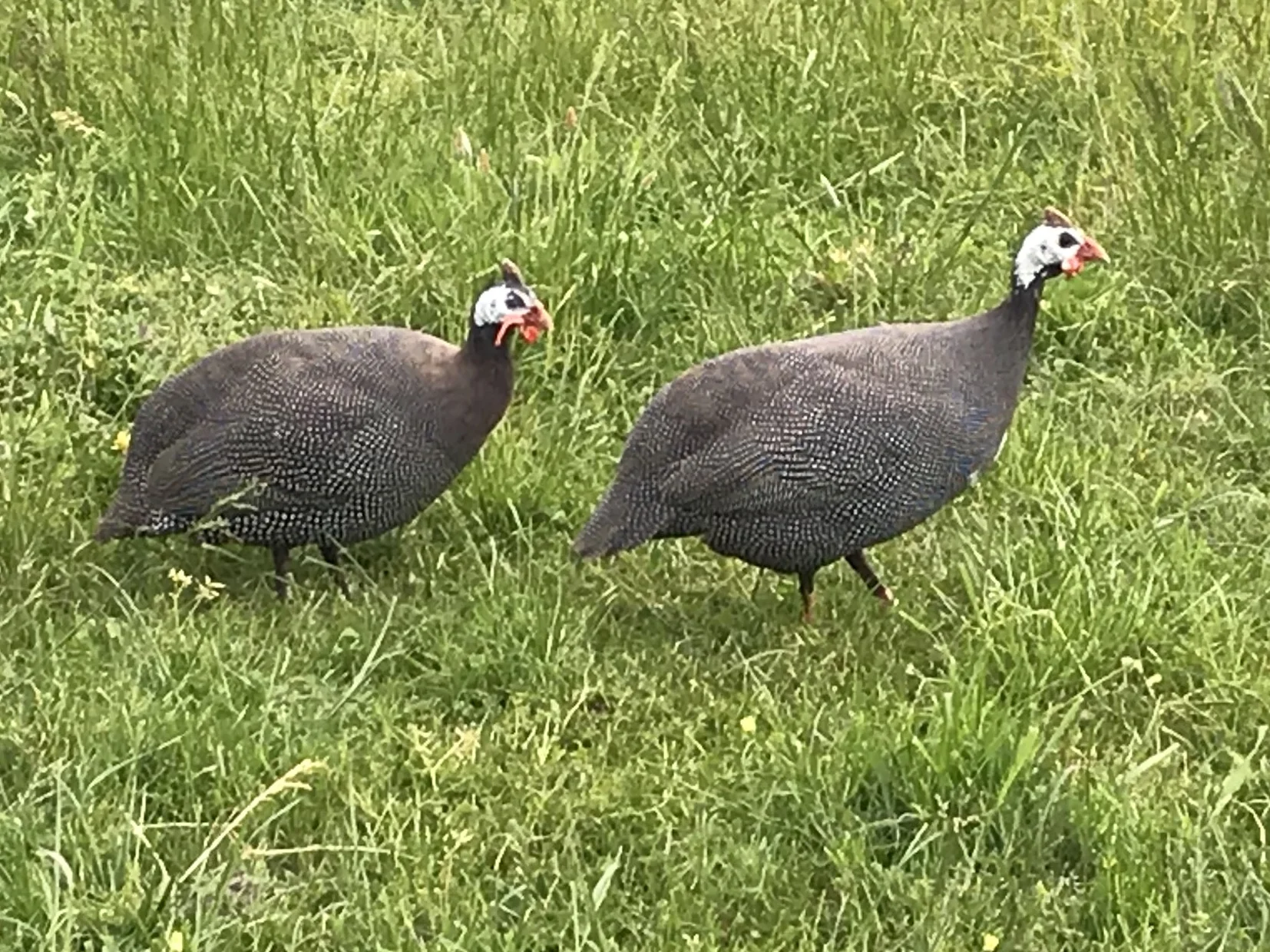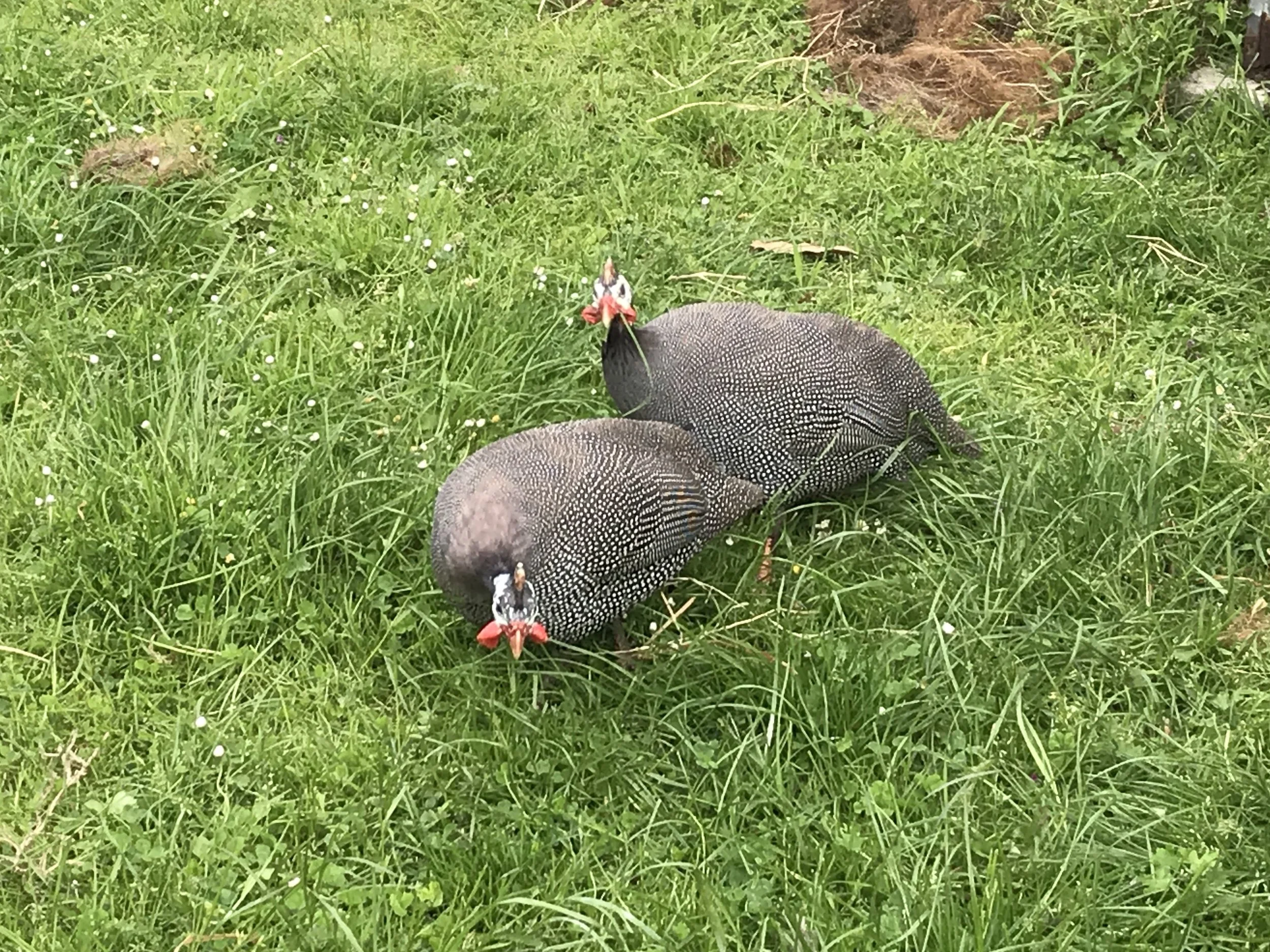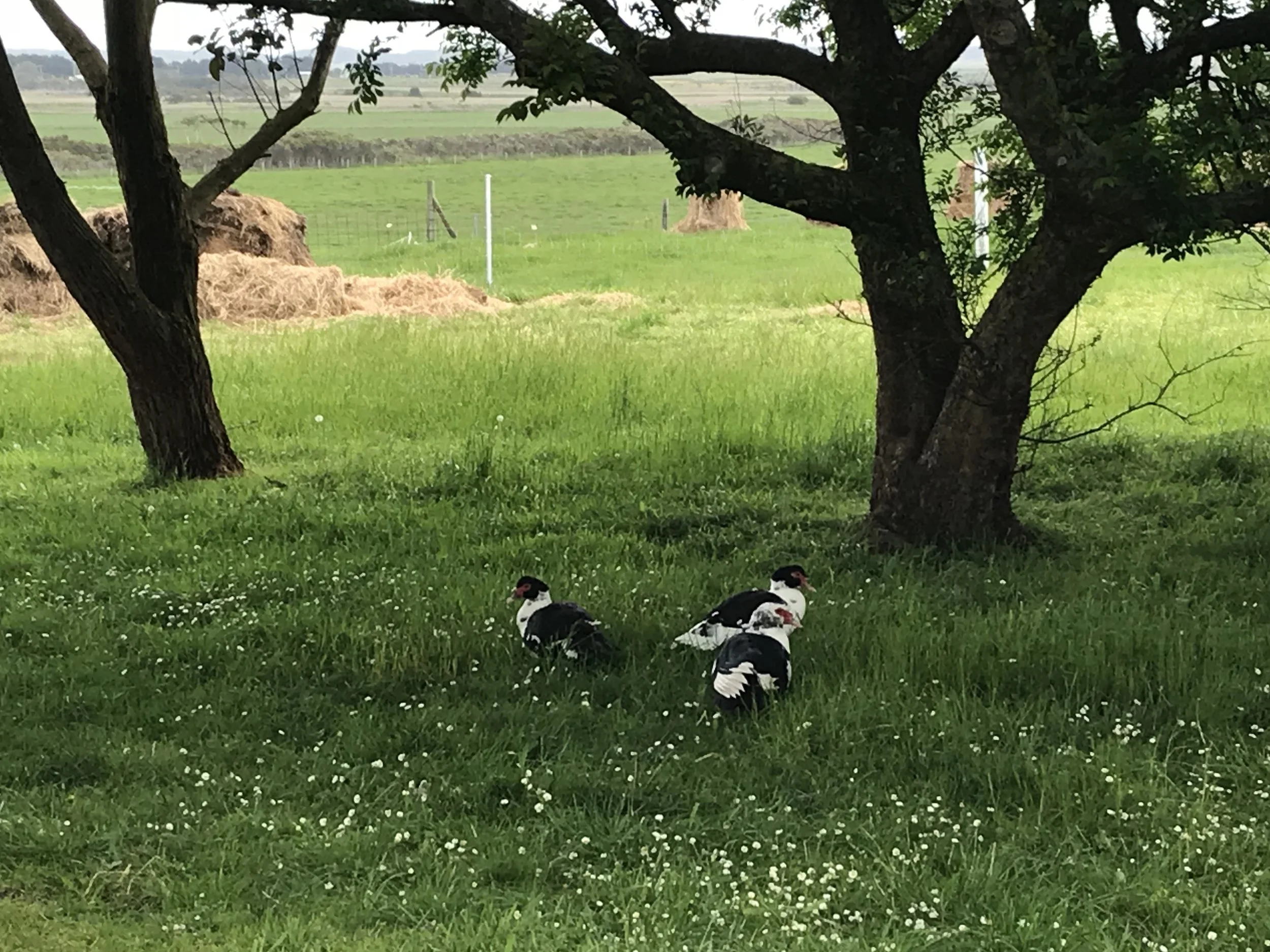Birdlife is an integral component of our regenerative farming operation. By growing more trees and improving the ponds on our land we are trying to encourage more wild birds to use this place as their home and consequently build the natural ecosystem around us. We have also brought a number of poultry species onto our property, each contributing to the farm system in various ways. Let me introduce you…
Isa Brown hens for egg production
Chickens
Our laying hens pictured above have been giving us lovely fresh eggs while we raise our heritage chickens. All the chickens have a purpose here, but the heritage breeds we have chosen are dual-purpose and therefore the ones we want to raise long-term. Our chicks are definitely growing fast, but nonetheless are still adorably palm-size.
Plymouth Rock and Wyandotte hens and roosters for egg and meat production
The chickens will be important in our rotational grazing system once we have more livestock on the farm. When the livestock are moved on to a new piece of land, the chickens will follow. They peck through what the livestock have left behind (including droppings) and pick out all the bugs that we don’t want lying around in our pasture, particularly maggots and parasite larvae. Trust me, they love it!
I should point out here that although our chickens are 100% pasture raised in the sense that they spend 100% of their waking hours roaming pasture, they do get supplementary feed as well, especially when there is no rotational grazing happening. Chickens enjoy eating grass, but they can’t live on grass alone, and we need to help them maintain a balanced diet when they are restricted to the space that we have given them to forage in (even though it is a LOT of space). This logic applies to most pasture raised animals. You can read more about it on the PROOF website as a starting point.
Not only do chickens clean up pastures after the four-legged grazers have been through, they fertilise the soil with their nitrogen-rich droppings. This is one of the main reasons we’ve planted our fruit trees in the chickens’ ‘home’ paddock – you should have seen the citrus at our last place!
Guinea Fowl
In our opinion, guineas are the answer to so many inconveniences on the farm. Why every farmer doesn’t have guineas on their land I’ll never understand! Here’s a snapshot of what these little grey-suited fowl do for us:
Pest control, particularly among our vegetables. Unlike chickens and other birds, guineas don’t care about our veggies, and they don’t scratch up the ground much either. Therefore, they are free to wander throughout the market garden and pick out the insects without disturbing our plants. Considering that insects can be the greatest source of failure when growing pesticide-free vegetables, this animal is priceless! They are primarily carnivorous and will eat anything smaller than a rat, so we’re hopeful that they will also keep rodents at bay.
Guineas hate snakes. And to a point so do we. Don’t get me wrong, snakes are an important element of our ecosystem, but we have an obligation to keep the animals that we raise safe (not to mention our guests). And as someone with low vision I’m particularly concerned about unintentionally getting up close and personal with a snake. Which brings me back to guineas: at the most extreme, they will kill and eat snakes that are a manageable size for them, but at the very least, if they come across a snake they will sound their unique alarm call and (more often than not) chase the snake away. Like I said, we want snakes to be able to enjoy the wilder parts of our property, but we can also rest easy knowing that our guineas have a vested interest in keeping them away from the working farm.
Ducks
Like most people who have spent any time in nature at all, I’ve always loved watching ducks, but I wasn’t expecting how very much I would enjoy having them around on the farm. Even after settling in here our Muscovies hang around the main farm and the home pond, keeping the grass low along with the bug count. They are beautiful, of course, but also remarkably strong, quiet, and calm. Unlike chickens who have perfected the art of the last-second-dash, our ducks are surprisingly compliant if we need to move them somewhere.
We want our duck population to grow so that they can continue to help maintain grassed areas, keep the pests down, and keep our ponds healthy.
The only thing missing now is some geese. Geese are excellent ‘guards’, so we want them around to help protect the other birds from land and aerial predators such as foxes and eagles. We’re quite sure they will do a better job at that than our senior town-raised Labrador (who is completely indifferent to all the animals around her). These huge, honking birds will also be part of our pasture management and add even more variety to the Flock Stock & Basil menu.
We like eating ethically grown food, which is why we want to produce our own meat and eggs. All of the species mentioned here can be used for both of these purposes, so once our breeding programs are established we will be able to enjoy the fine flavours of game birds and free ranging heritage poultry.
Of course, every bird I’ve listed has its down sides, but it all depends on what you consider to be a down side, and how you manage the birds. For example, some people don’t like the noise that guineas make, whereas we don’t have a problem with it, and in many cases are grateful for it. Or some people don’t like the way chickens will scratch up a garden, but we are careful to fence our chickens well, away from the market gardens, and only move them to areas that we specifically want scratched up.
We think of our array of feathered helpers as excellent alternatives to pesticides and lawn mowers. They all have their specific strengths and will provide plenty of entertainment to say the least, as well as loads of free and safe fertiliser.









